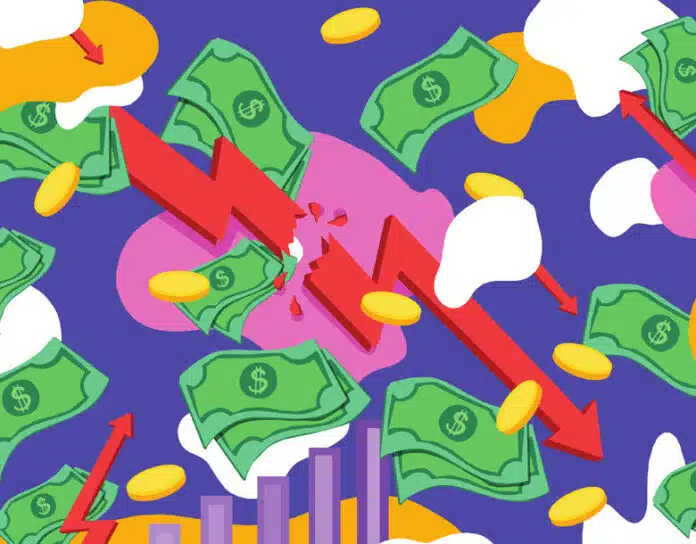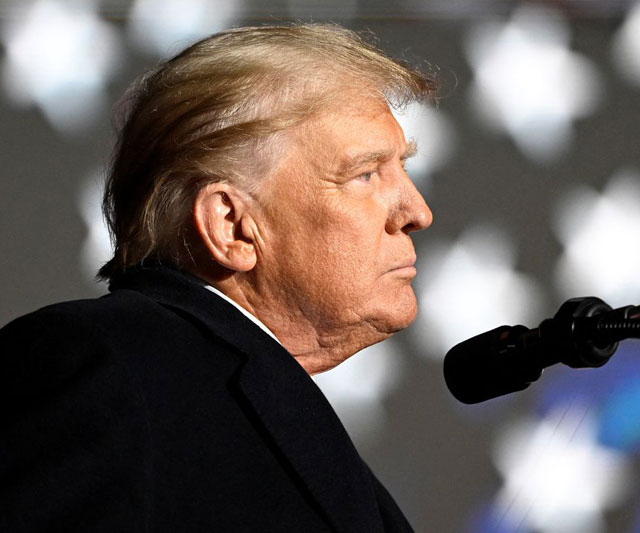Celebrity endorsements, companies with no clear plans, investors left feeling burned: The pandemic-era boom in risky investments called SPACs was an investment craze many would surely like to forget.
Well, it’s back. There has been a flurry of SPAC deals announced in the past month, and the most sought-after ones involve people in President Donald Trump’s orbit or investments close to his heart.
One is being pitched by key executives from Trump Media & Technology Group. Another is backed by a key adviser to Saudi Arabia. The investment bank at the center of many SPAC deals is connected to the Trump administration’s commerce secretary.
Many SPACs that have come to market in the past few weeks are targeting cryptocurrency or blockchain companies — a part of the market where Trump and members of his family have been particularly active.
SPACs, or special purpose acquisition companies, are inherently speculative. They allow people to raise money in the stock market without a business plan. Instead, the executives usually have two years to acquire a business with the funds they raised, or they have to give the money back.
In the years after the start of the COVID-19 pandemic, when risky investing seemed to be its own form of entertainment, SPACs became a $200-billion-plus phenomenon. By 2021, the busiest year for these deals, 613 SPACs were floated on the stock market, raising $163 billion, and it seemed almost anyone with any name recognition was flogging one — including celebrities and athletes such as Jay-Z, Alex Rodriquez and Shaquille O’Neal; former politicians such as Paul Ryan and Bill Frist; and high- and low-profile billionaire financiers.
Trump was already central to one of the most prominent and volatile SPACs in recent years. In October 2021, his social media company, which operates the Truth Social platform, said it would merge with a SPAC. The deal didn’t close until 2024, but investors in the SPAC and the merged company, Trump Media & Technology Group, which trades under the symbol DJT, have been on a wild ride. The stock rose as high as $92 in early 2022 and now trades around $25.
But many SPAC deals failed to find an acquisition target, or bought companies that turned out to be disappointments. The Securities and Exchange Commission opened investigations into dozens of SPACS, including the one behind Trump Media; investors filed suit over their losses; and 2022 turned into the stock market’s worst year since the great financial crisis — so the SPAC craze fizzled.
Things have changed again since then. The stock market is on an upswing, there’s strong demand for crypto, and a crowd of small investors are still looking for stocks that will swiftly soar and are willing to take the risk while it’s possible. Unlike a traditional initial public offering, which can take months, SPACs can go public within a few weeks.
“There’s a Trump bump in the SPAC market — it’s en vogue at the moment,” said Dimitre Genov, an investment banker and co-founder of the SPAC practice at Brookline Capital Markets. “People who are on the politically conservative end of the spectrum are looking at these.”
Brandon Lutnick, the son of Commerce Secretary Howard Lutnick, was one of the first sponsors of SPACs to return to the market. Shortly after his father joined the Trump administration, Brandon Lutnick took the helm of Howard Lutnick’s firm, Cantor Fitzgerald, which had long been a player in the SPAC market.
On May 1, Cantor took its latest SPAC — Cantor Equity Partners II — public on the Nasdaq exchange, raising $240 million with the younger Lutnick as the titular CEO of the vehicle.
That deal followed another SPAC that Lutnick announced April 23, which created a fund with backing from crypto company Tether and Japanese investor SoftBank to buy a company that invests in bitcoin. The stock quickly tripled in price.
Recently, Devin Nunes, a former Republican member of Congress and current CEO of Trump Media, and Eric Swider, CEO of the SPAC that became Trump Media, raised $210 million through another SPAC of their own. In regulatory filings, they said they planned to look for a deal in the crypto space and cited the president’s “unprecedented steps to integrate digital assets into the national financial strategy.”
“The SPAC I completed was one of the most complex M&A transactions on Wall Street in recent memory,” said Swider, who also serves on Trump Media’s board of directors. “That’s why Wall Street is interested in us. My client base is deep and wide and has nothing to do with Trump.”
Nunes did not immediately respond to a request for comment. Cantor declined to comment.
And Michael Klein, a longtime adviser to Saudi Arabia who attended events there during Trump’s visit to Riyadh, recently took a SPAC public. That SPAC, Churchill Capital Corp X, raised $414 million on the Nasdaq, more than initially expected.
Klein’s past SPAC deals have a mixed track record. He has another SPAC trading publicly that’s still searching for a company to buy. In 2021, as the SPAC boom was just getting going, he struck one of the largest SPAC deals ever, to take over electric-car company Lucid Motors in a deal then valued at $24 billion. It turned out to be a dud investment: After running up as high as $52 a share in late 2021, Lucid’s stock hovers around $2, down about 96%.
But the newest offering was so coveted by potential investors that Klein stopped marketing the share sale early, before his trip to Saudi Arabia, according to two people familiar with the matter. One investor said he had struggled to get any access to shares in this SPAC.
SPACs have been lucrative for many of the sponsors who can take fees and stakes in the companies once they strike a deal. It’s a boon for banks that can generate fees when they first take a company public and again when the SPAC acquires a business to run.
Howard and Brandon Lutnick’s firm, Cantor Fitzgerald, is one of the busiest bankers on these deals. Cantor Fitzgerald has taken 11 SPACs public this year, the most of any bank, according to Kristi Marvin, founder of SPACinsider, which collects data on the market.
This year, 45 SPACs have raised money, and 21 of those have come to market in the past month. Bankers and investors said sponsors were planning for many more in the coming weeks and months.
As bitcoin and crypto assets continue to trade higher, many of the latest SPACs have either explicitly noted they’re hunting for crypto deals or simply raised the possibility of doing such a deal in investor meetings.
Whether this continues depends on investors’ eagerness for risky bets, something that could change if the volatility that hammered the stock market in early April returns. For any investor jumping into the SPAC market, it’s a speculative gamble. Investors hand over money and have no idea what the sponsors might buy. Because the stock is publicly traded, they’re betting on the chance it’s a great company.
But the potential of a deal isn’t always as glorious as what investors imagine it might be, said Evan Ratner, president of the investment manager Levin Capital Strategies.
“The promise of something exciting is often more valuable than the actual deal,” he said.
c.2025 The New York Times Company. This article originally appeared in The New York Times.







